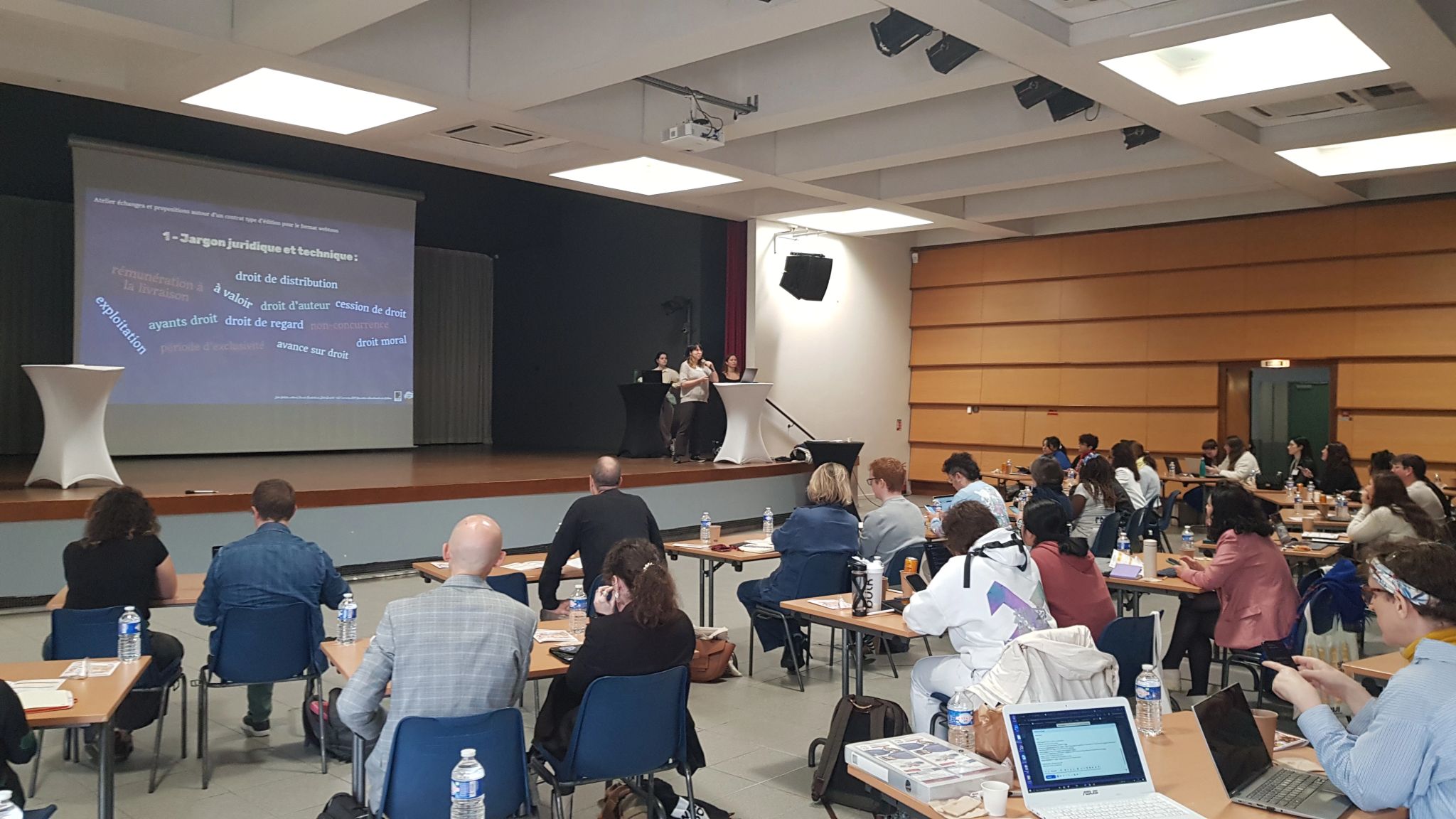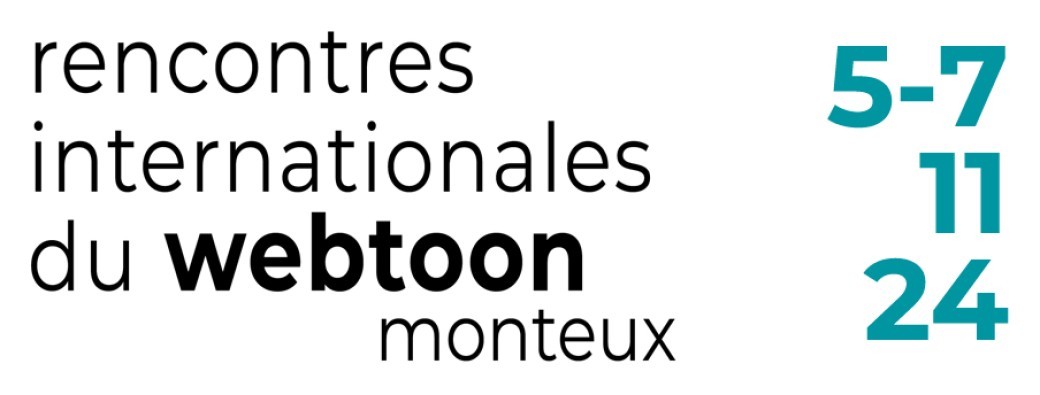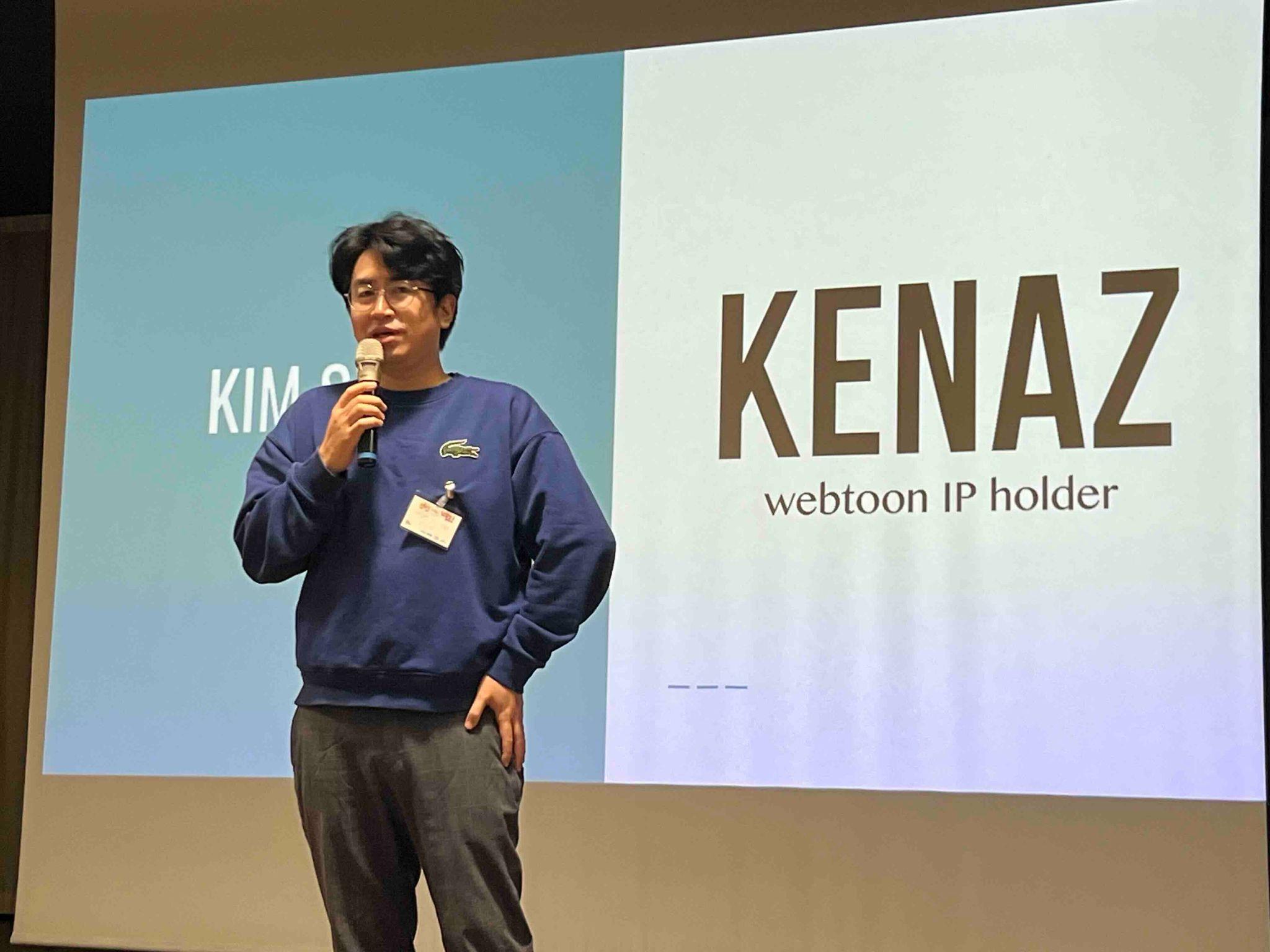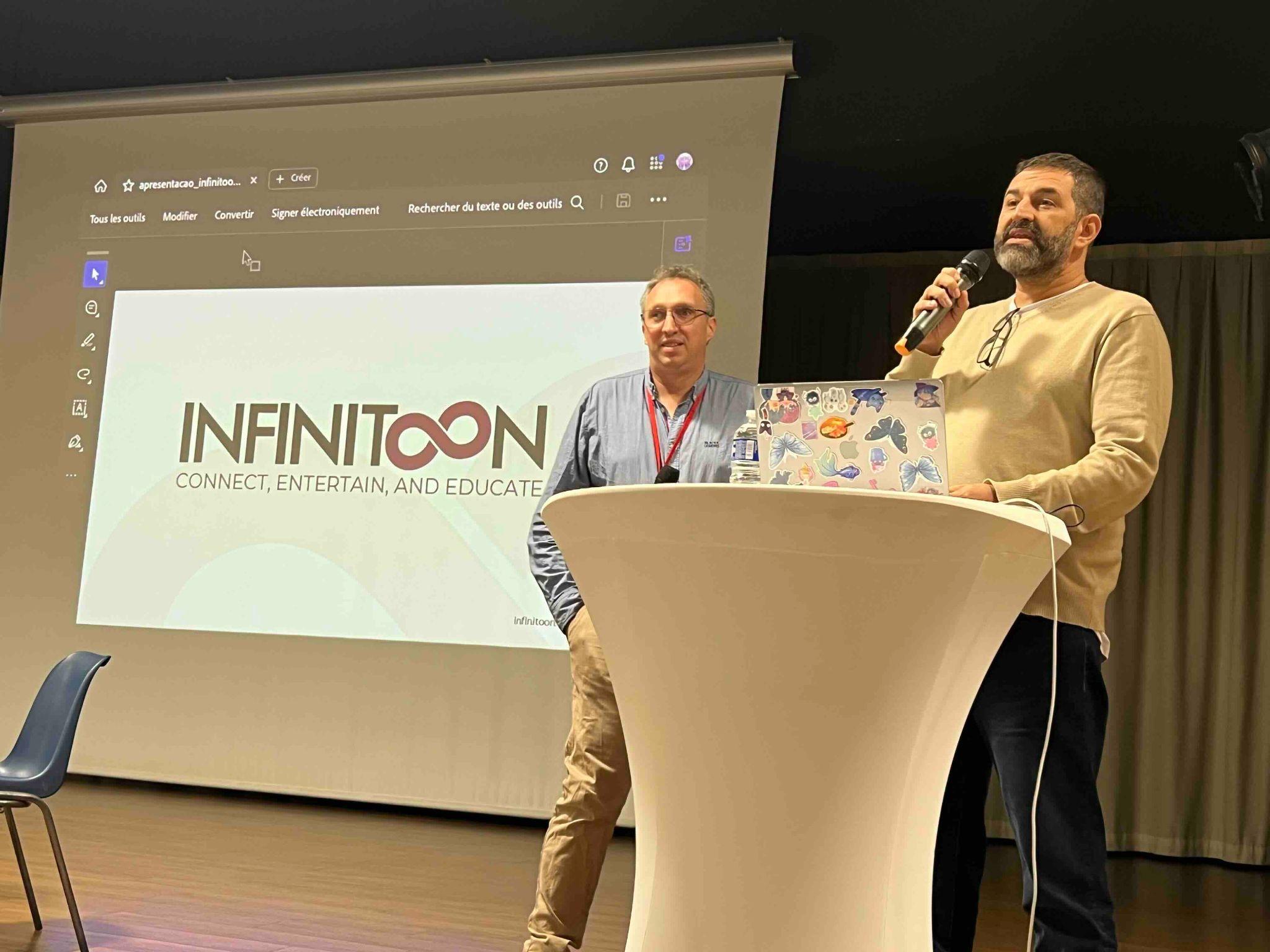
[Catch up with Deb Aoki’s entire travel diary here.]
While visiting the amazing comics/manga/BD exhibit in Paris was definitely one reason why I came to France, the main reason why I flew halfway around the world was to check out Rencontres Internationales du Webtoon (International Webtoon Meetings) in Monteux, in Provence / South of France.

Organized by Sébastien Célimon, a French publishing industry veteran (formerly with editions Glenat) the 2024 Rencontres Internationales du Webtoon marked the 3rd year of the event, which promised to bring together publishers, creators and webtoon-related companies and organizations to discuss the state of the webtoon/K-comics market in Europe and beyond, mostly focused on the Franco-phone (French-speaking) countries, which include France, Belgium and several countries in Africa.
The conference came at an interesting time for webtoons / K-comics publishing in France. A few months earlier, the European division of Piccoma, Kakao Entertainment’s webtoon platform closed up shop.
On top of that, there was talk of some discontent from print publishers about the relatively weak sales performance of K-comics titles in French so far (with the exception of Solo Leveling, which is the top-selling K-comics title, as it is in N. America), even as more publishers are entering the arena. In 2024 alone, 4 new publishers started offering print editions of Korean comics in French.
The event was intimate in scale (perhaps less than 100 attendees), but chock-full of interesting information and diverse perspectives. Yes, it was all in French, but Célimon graciously provided an FR-EN translator to help me follow some of the presentations’ content.
Some highlights from the talk sessions:
Guillaume Hamant from Delitoon shared a case study about their production of a boys love / omega verse version of The Phantom of the Opera. Created by a French creative team Aaricia and Shoko Lam, the series is featured on Bomtoon (www.bomtoon.com) and offered in English and Korean via Lezhin.


Founded in 2011 by Didier Borg, Delitoon was purchased in 2019 by Korean webtoon publishers Kidari Studio, which is part of the Daou Kiwoom Group. Today, Delitoon is available in French and German, and is part of a group that offers webtoons in 9 languages via 12 platforms, including Lezhin and Bomtoon, which are their BL and “adult romance”-focused webtoon platforms.
Describing the differences between the French-Belgian comics culture and Korean webtoons, Hamant said, “Bande dessinée in France covers cultural, social and political issues, but in Korea, comics is all about entertainment. To succeed in this space, you have to follow the Korean code: simple scenarios that are entertaining, and it must have good art.”
He also added, “if you want to work as a webtoon artist in Korea, you have to be like an NBA player – be fast, creative, and produce a LOT of content.”
The other challenges they had to sort out was finding creative teams that could produce high quality art that’s “compatible with Korean comics style,” and do it quickly, plus find professional translators who could translate French to Korean — both things that proved to be harder to find than one might expect.
But with all this to deal with, why would a company like Delitoon go through the trouble to use French creative teams to create comics for the Korean and global webtoon market? Well, mostly to bring in some new stories, art styles, and perspectives.
One complaint I’ve heard about webtoons from S. Korea from several people in the US, European and Asian comics publishing scene is that right now, Korean webtoons are suffering from a glut of repetitive content — too many stories that have similar plots, characters, and art styles. This has resulted in reader fatigue and rapidly declining readership. Recruiting global creators is one way to inject new ideas into the mix, and reinvigorate readers’ interest in webtoons.
Korean webtoon studio Kenaz is pursuing global growth by hosting their own Webtoon Academy in various countries across Europe and Asia. The French edition of Webtoon Academy gave a small group of students an intensive 3-month crash course in how to make webtoons, under the guidance of three instructors from S. Korea, along with mentors from Ellipse Studio, a French animation/webtoon studio, and ONO, a top webtoon platform in France.


The astonishing thing was that the entire workshop was offered free to the 12 participants, and included artists from various parts of France, as well as Gabon, Madagascar, and Cameroon, and was held in Angouleme, the home of the annual international comics festival. Kenaz has held similar workshops in Indonesia and Japan, marking a significant investment in developing the global webtoon creation ecosystem. Their goals: to discover and cultivate global talent, create global IP, and increase their talent pool for production of webtoons worldwide.

Another testament to webtoons’ global growth came via Pablo Lima, publisher at Brazil digital comics platform Infinitoon. As Lima pointed out, Brazil is a top 5 global consumer of Korean pop culture, and is the #1 consumer of K-pop culture streaming content in Latin America. Rakuten VIKI, a global streamer of K-drama, J-drama and C-dramas, animation and variety shows has seen 400% growth in their subscriber base in the past few years.
But how are webtoons doing in the French comics market? More on that on Day 5 from Rencontres Internationales du Webtoon, coming next.

